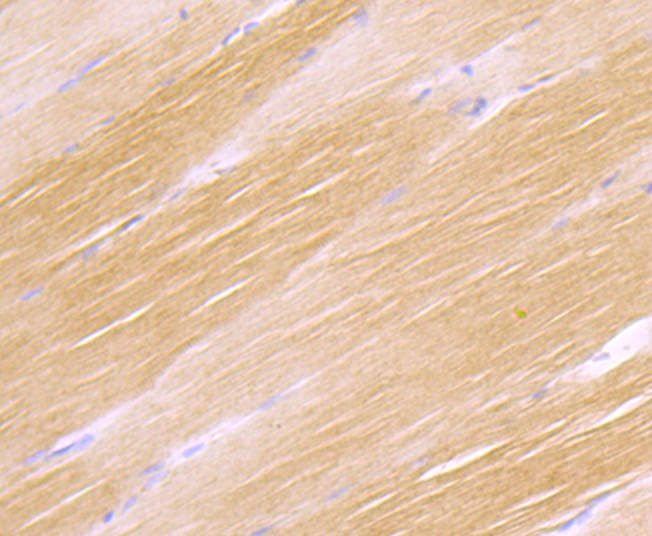Cadherins comprise a family of Ca++-dependent adhesion molecules that function to mediate cell-cell binding critical to the maintenance of tissue structure and morphogen-esis. Cadherins each contain a large extracellular domains characterized by a series of five homologous repeats, the most distal of which is thought to be responsible for binding specificity. The relatively short intracellular domains interact with a variety of cytoplasmic proteins, such as β-catenin, to regulate cadherin function. T-cadherin (for truncated-cadherin), also designated heart-cadherin or cadherin-13) expression levels have been shown to be reduced in human breast cancers and carcinoma cell lines. Evidence suggests that decreased levels of T-cadherin indicate a progression in breast malignancies.




